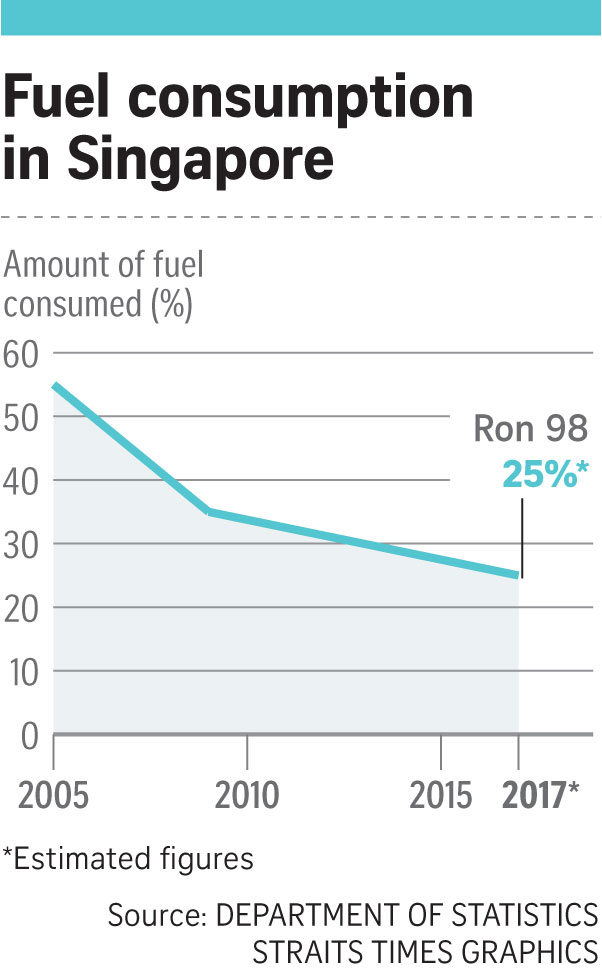Use of high-octane petrol waning
Sign up now: Get ST's newsletters delivered to your inbox
Christopher Tan , Christopher Tan
Follow topic:
The use of high-octane fuel among motorists here continues to dwindle - a trend experts hail as positive for health.
According to the Department of Statistics estimates, 98-octane petrol accounted for just 25 per cent of pump sales last year - down from 55 per cent in 2005.
Meanwhile, consumption of 92 and 95-octane fuels climbed from 45 per cent in 2005 to reach an estimated 75 per cent last year.
The department indicated that total pump sales (petrol and diesel) have hovered around eight million barrels per year in the last decade. One barrel is about 159 litres.
It added that the statistics were rounded to the nearest 5 per cent.
Oil industry consultant Ong Eng Tong attributed the trend to wider publicity and a better educated motoring public.
"Newspapers like The Straits Times have over the years run reports on why high-octane petrol is not necessary for most vehicles," Mr Ong said. "The message has finally got through."
He added that the trend has a positive impact on public health, as the use of higher-octane fuels produces more pollutants.

The rising acceptance of lower octane fuels notwithstanding, there are still motorists who lean towards 98-octane. Engineer Gay Eng Joo, 47, said his Honda Civic Type R - a high-performance version of the Civic - would not operate optimally with lower-octane fuels.
Businessman Leslie Chia, 52, uses 98-octane for his Audi A6 and BMW 1-series, but 95-octane for his Maserati GranCabrio.
"I was told 95 will cause 'knocking' on turbo engines," he said, referring to premature ignition which can cause power loss and lower efficiency.
Checks with BMW and Audi, however, revealed that all current models from both brands can accept 95-octane fuels - even high-performance variants.
While 98-octane petrol is largely unnecessary here, experts warn that motorists should refer to their vehicle owner's manual for the recommended octane level for their car.
Asian Clean Fuels Association director Clarence Woo pointed out that studies conducted by Japanese car manufacturers showed modern engines - especially those with turbocharging - improving in efficiency if 95-octane fuel is used instead of 90-octane.
As efficiency usually translates to lower carbon dioxide emission, Mr Woo said using 95-octane instead of 92-octane will have a positive environmental impact. He said there were no similar comparisons between 95-and 98-octane fuels.

